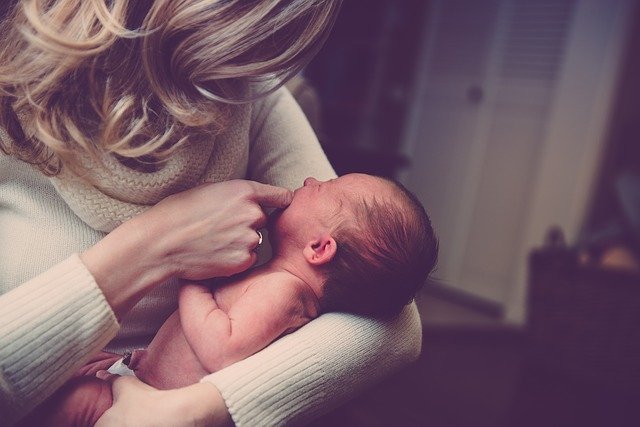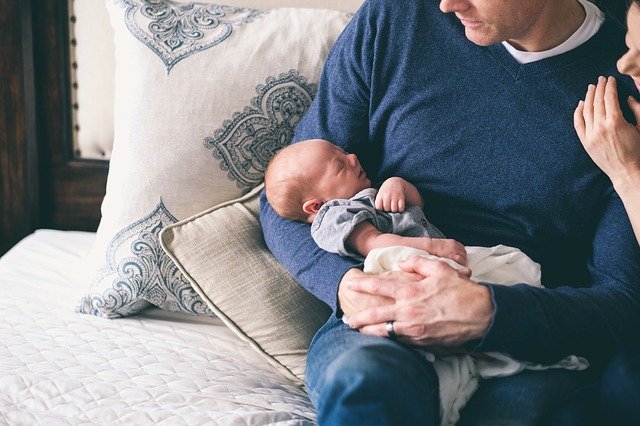
If you are expecting a baby, you may be unsure whether you are entitled to maternity leave or Maternity Benefit. The legislation is complex, and your own entitlement may be different according to your contract of employment, but it is very helpful to understand the standard provision in Ireland.
Contents
You are entitled to maternity leave if you are pregnant while you are in employment. All employees, including casual workers, are entitled to a basic period of maternity leave, and this is not affected by the length of your employment or the amount of hours you work each week.
The minimum entitlement is 26 weeks’ maternity leave, and you may also choose to take a further 16 weeks of additional unpaid maternity leave, which must begin immediately after the end of your basic maternity leave. This additional leave will not be covered by Maternity Benefit, and your employer is not obliged to pay you during this period. While you are taking additional maternity leave, if you become ill, you may request that your additional maternity leave is ended and you will be considered to be on sick leave instead.
According to the Maternity Protection (Amendment) Act 2004, you must stop working at least two weeks before the end of the week in which your baby is due, and you must not return to work for at least 4 weeks after the birth. You can choose how your remaining weeks are taken. If you qualify for Maternity Benefit, you must take at least two weeks, and no more than sixteen weeks, before the end of the week in which your baby is due.
You must give your employer at least 4 weeks’ written notice of your intention to take maternity leave, and provide a medical certificate to confirm your pregnancy. You should also provide at least 4 weeks’ written notice if you intend to take an additional 16 weeks of unpaid maternity leave, and you can give both notices at the same time.
Your contract of employment will detail your entitlement to pay and superannuation during maternity leave. Employers are not obliged to pay you while you are on maternity leave, but you may qualify for Maternity Benefit (see below) if you have enough PRSI contributions. Some employers, however, make additional provision for maternity leave to ensure that the employee receives their full pay less the amount of Maternity Benefit received.
You are entitled to receive additional leave for any public holidays which occur during your maternity leave, including your additional maternity leave. You will continue to accrue annual leave and public holiday entitlement while you are on maternity leave or additional maternity leave.
Maternity Benefit is paid by the Department of Employment Affairs and Social Protection to women who are on maternity leave and have enough PRSI contributions on their social insurance record. This should be applied for at least six weeks before your maternity leave is due to start, or twelve weeks if you are self-employed. You may be entitled to half-rate Maternity Benefit if you are already in receipt of some social welfare payments.
Maternity Benefit is paid for 26 weeks (156 days), and it is taxable. If you choose to take a further 16 weeks of unpaid additional maternity leave, this will not be covered by Maternity Benefit, but you will be entitled to a credited social insurance contribution for each week of unpaid leave that you choose to take, up to 16 weeks.
While you are in receipt of Maternity Benefit, you may not take on any paid employment. You may, however, work in a voluntary capacity, or as a public representative, or attend courses of education. The standard weekly rate for Maternity Benefit is currently €250

If a mother dies within 40 weeks of giving birth, the father is entitled to take a period of leave, which is calculated from the date of the death of the mother. If the mother dies within 24 weeks of giving birth, the father may choose to take the additional maternity leave which was due to her. If she dies between 24 and 40 weeks after giving birth, the father may take leave until 40 weeks after the birth. This leave must start within 7 days of the mother’s death.
In usual circumstances, a new father/parent is entitled to take two weeks of paid paternity leave from employment or self-employment when a child is born or adopted.
Additional to maternity or paternity leave, there are other statutory entitlements for parents. These include Parental Leave. Parental Leave lets parents take unpaid leave from work to spend time looking after their children. You can take up to 26 weeks’ parental leave for each eligible child before their 12th birthday.
Generally, you must have been working for your employer for a year before you are entitled to parental leave.
You must meet certain criteria to be eligible for parental leave. You must:

A different type of statutory entitlement from Parental Leave, Parent’s Leave is specifically for parents during the child’s first two years. While Parental Leave can be taken, unpaid, at any time during the child’s first twelve years, Parent’s Leave must be taken during the first 24 months, and there is a benefit that can be claimed while the leave is taken, Parent’s Benefit. There have been recent changes to the legislation around Parent’s Leave.
From July 2022:
You must give your employer at least 4 weeks’ written notice of your intention to return to work. When you return to work, the law states that you are entitled to return to the same job, with the same contract of employment. The Maternity Protection Act 1994 states that your employer must provide you with suitable alternative work if it is not ‘reasonably practicable’ for you to return to your former job, but qualifies that this new position should not offer substantially less favourable terms than your previous job.
According to the law, your employment conditions cannot be made worse while you are on maternity leave, and if you would have been given a pay rise or improved working conditions had you been at work while you were on maternity leave, you are entitled to receive these on your return to work.
While you are receiving Maternity Benefit, you will be awarded PRSI credits. If you also choose to take unpaid additional maternity leave, your employer should complete an application form for maternity leave credits when you return to work.
If you decide not to return to work when your maternity leave ends, you should give notice to your employer as per your contract of employment. If you choose to return to work less than 26 weeks after the birth of your baby, you may be entitled to take some time off or reduce your hours without loss of pay if you are breastfeeding.
You should apply for Maternity Benefit at least six weeks before you intend to go on maternity leave, or 12 weeks if you are self-employed. You can apply for Maternity Benefit online at mywelfare.ie or by post, and you will need to include a form completed by your employer or your doctor.
Maternity Benefit is paid weekly in advance, at a standard weekly rate. Payment is made directly into your bank account, or directly to your employer’s bank account if this is preferable to you.
CareerWise is Ireland’s leading specialist recruitment firm, based in Cork, Shannon and Galway, and we can help you to find your ideal new job in Ireland. We specialise in the Engineering, Supply Chain, Science/Pharma, IT and Accounting industries in Ireland, and we look forward to working with you. Contact us online now or call us on +353 (0) 21 206 1900 to arrange a consultation.

Joe Robbins is co-founder of CareerWise Recruitment. A graduate of the University of Limerick (Degree in Business Studies, 1985), Joe worked in the UK for five years where he specialised in materials management, production management and plant management for a number of companies.
He returned to Ireland in 1992 to become Operations Manager for a Cork-based start-up, FMC Automotive Division which was subsequently taken over by Snap-on Equipment. Joe managed the business re-location of this company to Shannon in 1997 before setting up CareerWise Recruitment in 1999.
He is a committee member of the Chartered Institute of Personnel and Development (CIPD) Mid-West region, and a former Director and Vice President of the Shannon Chamber of Commerce. Joe is former Chairperson of the Sixmilebridge Camogie Club and current Chairperson of the Clare County Camogie Board.
CareerWise Recruitment. EastGate Village, EastGate, Little Island, Cork.
Phone: +353 (0) 21 206 1900
Email: info@careerwise.ie